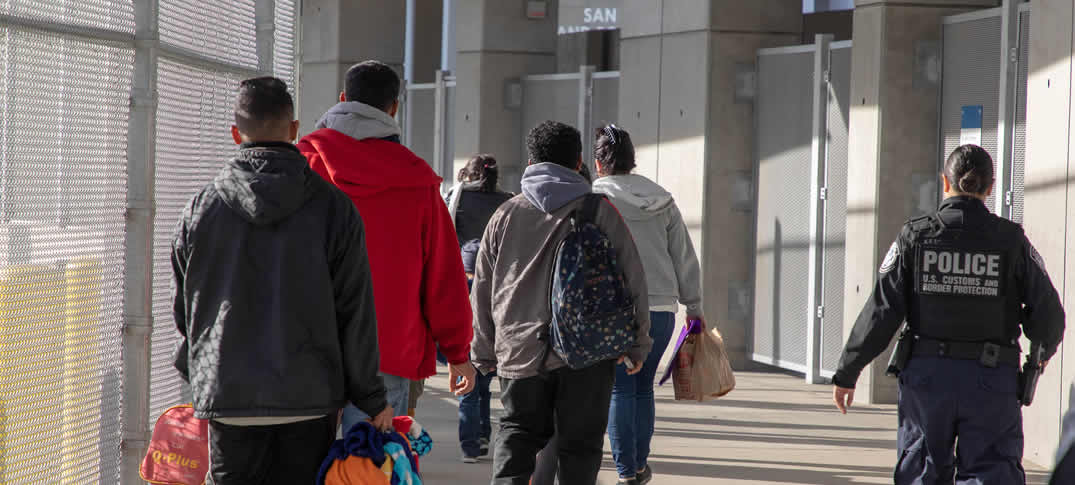What are so-called “sanctuary” policies?

What are so-called “sanctuary” policies?
Over the past several years, an increasing number of states, counties, and cities have adopted a variety of policies intended to engender a greater level of trust and cooperation between local law enforcement and communities with sizeable immigrant populations, regardless of immigration status. These policies include offering English-language classes; issuing municipal identification documents and driver’s licenses to all residents; ensuring that immigrants have equal access to bail; establishing U-Visa policies to make it easier for victims of crime to obtain necessary documents from law enforcement agencies; and training criminal prosecutors and public defenders on the immigration consequences of convictions and plea deals.
One subset of these policies concerns a state’s or locality’s role in cooperating with federal authorities to enforce immigration law. These laws, policies, or resolutions are sometimes referred to as “sanctuary” policies, although no legal or standard definition of the term exists. There are many reasons jurisdictions adopt sanctuary policies, such as: a desire to strengthen relations between local law enforcement and communities with large numbers of immigrants by allowing immigrants to work with police in reporting and investigating crimes without fear of retribution or potential deportation; allowing state and local governments to determine how they will prioritize and allocate their resources; and shielding local law enforcement agencies from liabilities resulting from local enforcement of federal immigration laws.
There is no universal definition of a sanctuary policy
Despite the nationwide debate, there is no one clear definition of what it means for a state or local government to adopt sanctuary policies. Sanctuary policies take many forms and generally fall into the following categories:
- Policies restricting the ability of state and local police to make arrests for federal immigration violations, or to detain individuals on civil immigration warrants;
- Policies prohibiting “287(g)” agreements through which ICE deputizes local law enforcement officers to enforce federal immigration law;
- Policies that prevent local governments from entering into a contract with the federal government to hold immigrants in detention;
- Policies preventing immigration detention centers;
- Policies restricting the police or other city workers from asking about immigration status;
- Policies restricting the sharing of certain information on immigrants with the federal government;
- Policies restricting local police responses to federal immigration detainers; and
- Policies refusing to allow ICE into local jails without a judicial warrant.
The common theme behind these categories is that under a sanctuary policy, state and local officials will limit their cooperation with federal immigration officials, but do not actively prevent federal officials from carrying out their immigration enforcement duties.
One of the most common forms of sanctuary policy is a restriction on holding immigrants in state or local jails following a “detainer” issued by Immigration and Customs Enforcement (ICE). A detainer is an official but nonbinding request from ICE that a state or local law enforcement agency maintain custody of an individual for up to 48 hours beyond the time the individual otherwise would have been released, so that ICE can arrange to take over custody.
Sanctuary policies are based on the idea that the federal government cannot compel jurisdictions to take part in immigration enforcement
Federal actions intended to force local jurisdictions to perform immigration enforcement are likely unconstitutional. Under the Tenth Amendment of the U.S. Constitution, the Federal government “may neither issue directives requiring the States to address particular problems, nor command the States’ officers, or those of their political subdivisions, to administer or enforce a federal regulatory program.” The Supreme Court has clarified that immigration enforcement is the sole duty of the federal government, and state and local police may only carry out immigration enforcement if specifically authorized to do so by the federal government.
Compliance with immigration detainers is voluntary, not mandatory The federal government cannot force local jurisdictions to honor detainers, an interpretation repeatedly upheld by the courts. Some state courts have also ruled that the laws of their state do not provide legal authority for law enforcement agencies to hold people on an immigration detainer. In fact, jurisdictions that do honor detainers can be found liable for unlawfully holding an individual on a detainer without a judicial warrant in violation of the Fourth Amendment, and may be required to compensate individuals for damages.
Sanctuary jurisdictions do not shield immigrants from deportation, and may still share information or otherwise cooperate with federal immigration authorities
Contrary to what many believe, sanctuary policies do not conceal or shelter undocumented immigrants from detection. Nor do they shield immigrants from deportation or prosecution for criminal activities. State and local police still enforce state and local criminal laws against immigrants who are accused of committing a crime in sanctuary jurisdictions. Importantly, the Supreme Court has made clear that “as a general rule, it is not a crime for a[n undocumented immigrant] to remain present in the United States.”
Jurisdictions that adopt at least one sanctuary policy may still cooperate with federal immigration officials in a variety of other ways. For example:
- Even in sanctuary jurisdictions, officials still send the fingerprints of any person—including an immigrant— booked into a prison or jail to the federal government; the federal government then uses that information to identify noncitizens for potential deportation.
- Sanctuary jurisdictions may rent jail space to the federal government to house immigrant detainees through Inter-Governmental Service Agreements (IGSAs), although some states have tried to prohibit or limit immigration detention in their state.
- Sanctuary jurisdictions may even have policies that direct local law enforcement to, under limited circumstances, either honor requests from ICE to be notified of an individual’s release from local custody or comply with immigration detainers. A sanctuary jurisdiction may have, for example, a policy directing local law enforcement to only honor detainers if the individual in question has been convicted of a serious or violent crime.
Sanctuary jurisdictions are in compliance with federal law
8 U.S.C. § 1373 is a federal statute that prohibits state and local governments from enacting laws or policies that limit communication about “information regarding the immigration or citizenship status” of individuals with the Department of Homeland Security (DHS). The statute also prohibits restrictions on maintaining such information. But a number of courts have found that Section 1373 unlawfully interferes with state and local authority.
In 2017 and 2018, the Department of Justice (DOJ) sent letters to a number of cities and counties with sanctuary laws, threatening to withhold criminal justice grants unless the jurisdictions confirmed compliance with Section 1373, which DOJ interpreted to require communication about an individual’s citizenship or immigration status, allow access to jails, and honor immigration detainers. Numerous cities and counties sued, with all but one court disagreeing with DOJ’s interpretation.
In light of these decisions, Section 1373 does not:
- Prohibit laws or policies that limit communication regarding criminal case Information, custody status, or release dates of individuals in custody;
- Mandate that jurisdictions comply with immigration detainers;
- Prohibit policies or laws that restrict compliance with detainers; or
- Require state or local law enforcement to collect information on immigration or citizenship status—nor does it prevent jurisdictions from limiting the collection of such information.
Jurisdictions that do not honor ICE detainers or adopt sanctuary policies are safer and more economically vibrant than those that do
A 2017 report found a correlation with lower crime rates and higher economic indicators in counties that do not honor ICE detainers when compared to counties that do. The analysis revealed that in the non-detainer counties:
- Crime is lower. There are, on average, 35.5 fewer crimes committed per 10,000 people in the non-detainer counties compared to counties that do honor ICE detainers. Crime is defined in the report as the total number of violent crimes (murders, rapes, robberies, and assaults) and property crimes (burglaries, larceny, motor vehicle thefts, and arsons) per 10,000 people. Likewise, a 2016 study found no association between crime rates and policing practices. Multiple studies published since 2017 have confirmed these findings or determined that sanctuary policies have no measurable effect on crime rates. One study in 2020 even found that sanctuary policies reduce domestic violence against Hispanic women. No studies have demonstrated a link between sanctuary policies and increased crime.
- Median household income is higher. On average, median household income is $4,353 higher in the non-detainer counties than in counties that honor detainers. This outcome is not driven by income gains among Latinos at the expense of white residents or African Americans. In fact, among white residents, median household income is $2,836 higher in the non-detainer counties.
- Poverty is lower. The poverty rate is 2.3 percent lower in non-detainer counties. The rate of poverty among white residents is 1.4 percent lower in non-detainer counties.
- Reliance on public assistance is lower. The percentage of households receiving Supplemental Nutrition Assistance Program (SNAP) benefits (formerly known as food stamps) is 2.6 percent lower in non-detainer counties. The percentage of households that receive Supplemental Security Income (SSI) is 0.9 percent lower. The share of children under 18 who receive public assistance is 4.9 percent lower in non-detainer counties.
- Labor-force participation is higher. On average, the labor-force participation rate (the proportion of the population 16 years and older that is working or actively looking for a job) is 2.5 percent higher in non-detainer counties. White labor-force participation is also 2.5 percent higher in non-detainer counties.
- Employment-to-population ratio is higher. The employment-to-population ratio is the number of people 16 years and older who are employed, divided by the total number of people 16 years and older. The employment-to-population ratio is 3.1 percent higher in non-detainer counties. The white employment-to-population ratio is 3.2 percent higher in non-detainer counties.
- Unemployment is lower. The unemployment rate is 1.1 percent lower in non-detainer counties. The white unemployment rate is 0.8 percent lower. Similarly, a 2016 study found no association between unemployment rates and policing practices.
Estos artículos también te pueden interesar:
The Foreign Affairs IT Fellowship Is An Opportunity Of A Lifetime

If you want to use your tech skills to make a difference, see the world, and experience different cultures...
Deaths In Immigration Detention Are At A Record. ICE Can Prevent The Next One

Three men died in U.S. Immigration and Customs Enforcement (ICE) custody on within a week of each other



